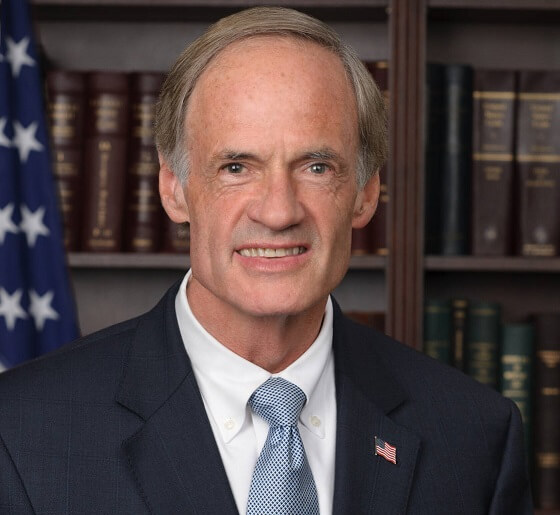A bipartisan group of U.S. senators recently introduced a bill to reauthorize the Diesel Emissions Reduction Act (DERA).
U.S. Sen. Tom Carper, D-Del., top Democrat on the Environment and Public Works (EPW) Committee, and Sen. Jim Inhofe, R-Okla., joined with EPW Chairman John Barrasso, R-Wyo., and Sens. Sheldon Whitehouse, D-R.I.; Dan Sullivan, R-Alaska; Cory Booker, D-N.J.; Shelley Moore Capito, R-W.Va.; Kirsten Gillibrand, D-N.Y.; Kevin Cramer, R-N.D.; and Chris Van Hollen, D-Md., in introducing the Diesel Emissions Reduction Act of 2019.
This legislation would reauthorize DERA – one of the most cost-effective federal clean air programs, according to the senators – through fiscal year 2024 at its current funding levels. The bill would also ensure equal funding opportunities between both large metropolitan centers and less-populated rural areas across the country.
“As we explore ways we can work together to clean our air and address climate change while creating jobs, this bipartisan legislation is a great example of how we can do just that,” Carper says. “DERA effectively uses American-made technology to reduce air pollution that harms our lungs and our climate – creating American jobs and a healthier environment. The program is so successful, every dollar invested in DERA generates a 13-fold return in health and economic benefits. This makes DERA a true win-win.”
“The DERA program has been used by Oklahoma to effectively reduce pollution in a cost-effective way through public private partnerships,” Inhofe says. “The program has been used to voluntarily upgrade more than 73,000 diesel-powered vehicles, all while creating lucrative manufacturing jobs.”
DERA, first established in the Energy Policy Act of 2005, was co-authored by Carper and the late U.S. Sen. George Voinovich, R-Ohio. The DERA program, administered by the U.S. Environmental Protection Agency (EPA), uses federal funding – distributed through grants and rebates – to leverage state and other non-federal funding to finance the voluntary replacement or installation of retrofits on existing heavy-duty diesel vehicles and engines. Recently, for example, the United Parcel Service (UPS) was awarded DERA funding to replace older trucks with cleaner-diesel vehicles, newer compressed natural gas vehicles or newer liquefied natural gas vehicles.
“It’s in everyone’s interest to upgrade older diesel engines with the cleanest, most efficient technology available,” Whitehouse says. “Our bipartisan bill is a win-win, as it aims to reduce harmful pollution driving climate change while helping truck drivers, fishermen and farmers save on fuel costs.”
“DERA is an example of commonsense bipartisan legislation that is a win for states and federal governments alike,” notes Capito. “This model environmental policy is a carrot – not a stick – that betters air quality in our communities, and it’s a is a doable, realistic policy that has led to successful results. I’m proud to join my colleagues in addressing emissions in a responsible way.”
Citing EPA numbers, the lawmakers say each federal dollar invested in DERA has leveraged as much as $3 from other government agencies, private organizations, industry and nonprofit organizations. The most recent DERA reauthorization passed unanimously in the Senate and by voice vote in the House in 2010.







